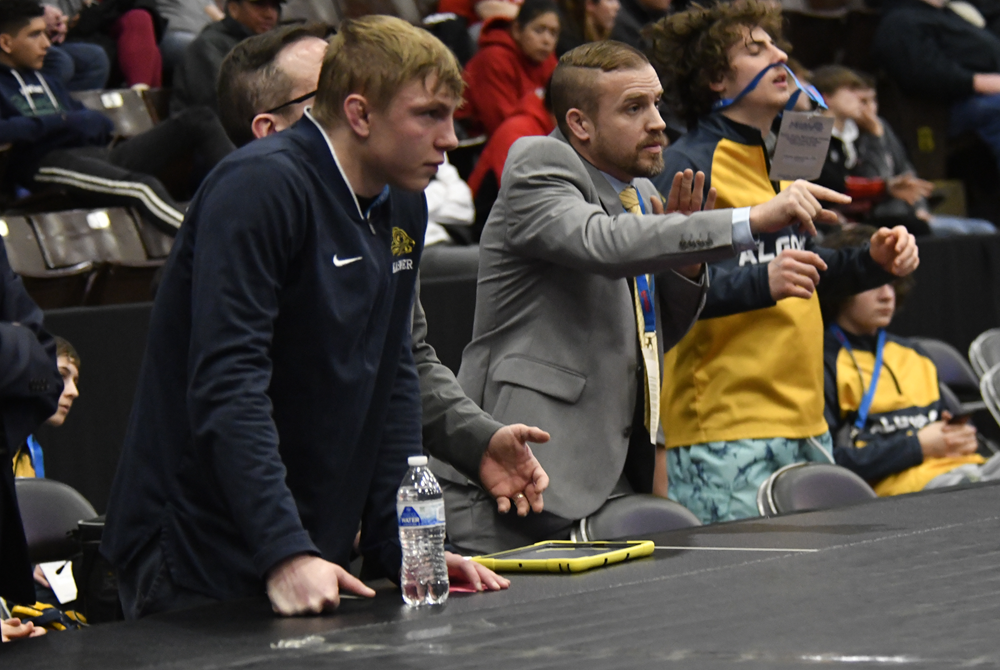
Be the Referee: Because They Love It
February 13, 2019
This week, MHSAA assistant director Brent Rice explains why officials take up the avocation despite frequent criticism of their best efforts.
Be The Referee is a series of short messages designed to help educate people on the rules of different sports, to help them better understand the art of officiating, and to recruit officials.
Below is this week's segment – Because They Love It - Listen
After the uproar about officiating in a recent pro football game, an online article appeared with the headline “Why in the world would anyone want to be a referee?” It’s a good question.
While everyone in the game – players, coaches and officials – strive for perfection, only the officials are ultimately expected to reach that standard. And that’s simply not fair. So why would anyone want to be a referee?
Every referee will give you three little words: “I love it!” They love it because they know how important it is – no matter the level of play. And they want to be right all the time – and most of the time they are. And like a lot of other things in sports, the friendships and relationships built, the memories – they can’t be beat. So we’ll always encourage people to join us as referees, and for those who can’t – or won’t – to stay in their lane when at the game.
Past editions
February 7: Coach/Official Communication - Listen
January 31: Backcourt Violation? - Listen
January 24: Required Hockey Equipment - Listen
January 17: You Make the Call: 10-Second Clock - Listen
January 10: Tripping in Hockey - Listen
January 3: Sliding in Basketball - Listen
December 27: Stalling in Wrestling - Listen
December 20: Basketball: You Make the Call - Listen
December 13: Basketball Uniform Safety - Listen
December 6: Coaching Box Expansion - Listen
November 29: Video Review, Part 2 - Listen
November 22: Video Review, Part 1 - Listen
November 15: You Make the Call - Sleeper Play - Listen
November 8: 7-Person Football Crews - Listen
November 1: Overtime Differences - Listen
October 25: Trickery & Communication - Listen
October 18: Punts & Missed Field Goals - Listen
October 11: What Officials Don't Do - Listen
October 4: Always 1st-and-Goal - Listen
September 27: Unique Kickoff Option - Listen
September 20: Uncatchable Pass - Listen
September 13: Soccer Rules Change - Listen
September 6: You Make the Call: Face Guarding - Listen
August 30: 40-Second Play Clock - Listen
August 23: Football Rules Changes - Listen

Be the Referee: Wrestling Technology
By
Sam Davis
MHSAA Director of Officials
January 24, 2024
Be The Referee is a series of short messages designed to help educate people on the rules of different sports, to help them better understand the art of officiating, and to recruit officials.
Below is this week's segment – Wrestling Technology - Listen
You see the use of technology in football quite frequently. A quarterback throws an incomplete pass on third down and when he comes to the sidelines, coaches are able to show him on a tablet or TV screen what went wrong.
But can that same technology be used in wrestling? It can.
Current National Federation playing rules allow coaches in the wrestler’s corner to use video or still photographs to instruct wrestlers during any timeout or dead clock situations. Just like in the football example, a wrestler could view footage from earlier in their match during a timeout and use that information going forward. However, that video cannot be used to dispute a call.
One thing coaches can’t do is transmit audio to a wrestler through an earpiece.
Previous Editions
Jan. 9: 3 Seconds - Listen
Dec. 19: Unsuspecting Hockey Hits - Listen
Dec. 12: No More One-And-Ones - Listen
Nov. 21: Football Finals Replay - Listen
Nov. 14: Volleyball Unplayable Areas - Listen
Nov. 7: Pass/Kick Off Crossbar - Listen
Oct. 31: Cross Country Interference - Listen
Oct. 24: Soccer Overtime - Listen
Oct. 17: Tennis Spin - Listen
Oct. 10: Blocked Kick - Listen
Oct. 3: Volleyball Double & Lift - Listen
Sept. 26: Registration Process - Listen
Sept. 20: Animal Interference - Listen
Sept. 13: Feet Rule on Soccer Throw-In - Listen
Sept. 6: Volleyball Jewelry - Listen
Aug. 30: Football Rules Similarities - Listen
Aug. 23: Football Rules Differences - Listen

